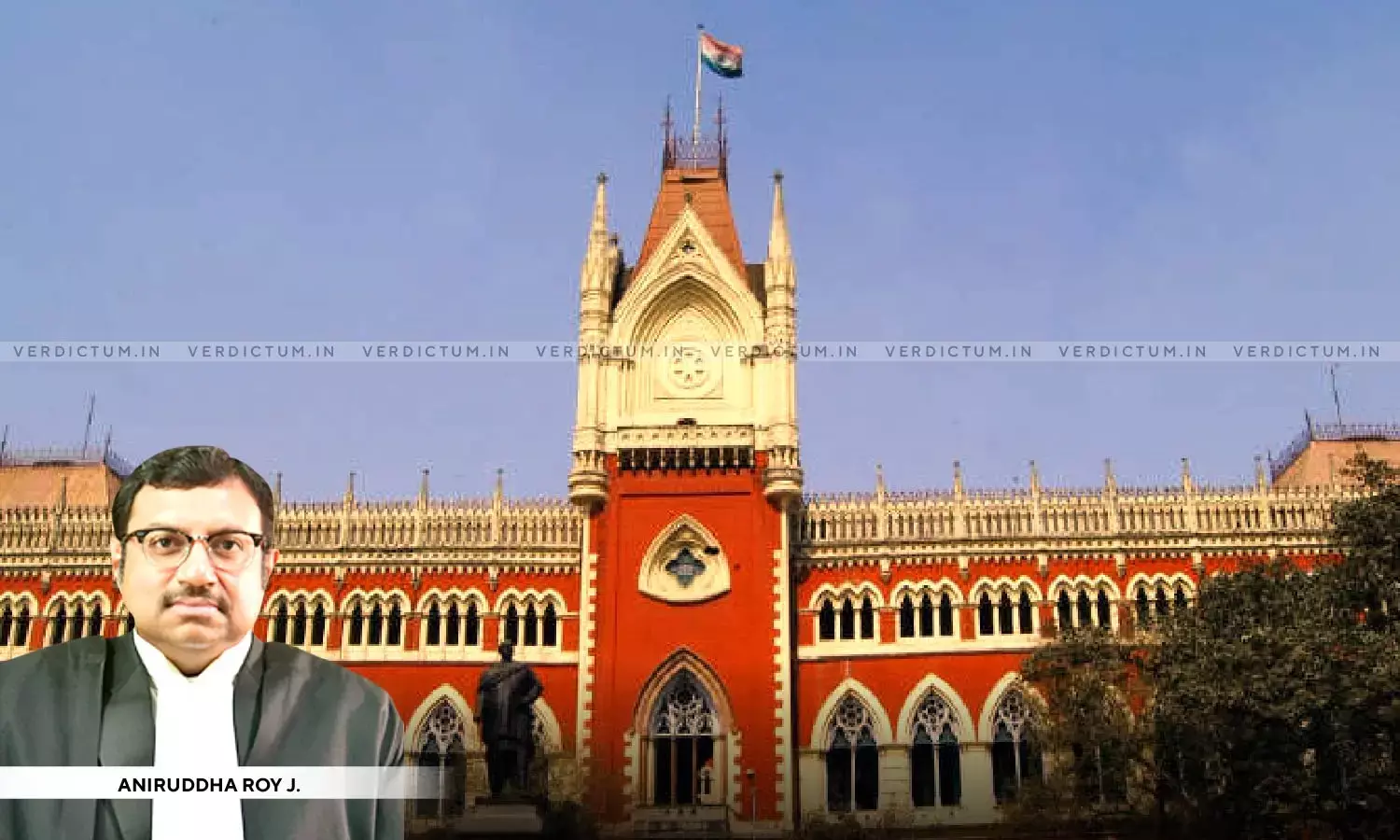Order XXIX Rule 2 CPC | Service Of Summons On Registered Office Of Company By Post Constitutes Valid Service: Calcutta High Court
The High Court held that once a writ of summons is served by post at the registered office of a defendant company, it constitutes lawful service under Order XXIX Rule 2 of the Code of Civil Procedure and does not require delivery to or acceptance by any designated officer.

Justice Aniruddha Roy, Calcutta High Court
The Calcutta High Court has held that service of a writ of summons at the registered office of a company through post constitutes valid service under Order XXIX Rule 2 of the Code of Civil Procedure, 1908.
The High Court clarified that such service does not require proof of receipt specifically by any secretary, director or principal officer once delivery at the registered office is established.
The Court was hearing an application filed by the defendant seeking an extension of time to file its written statement in a commercial suit for recovery of demurrage charges. The defendant contended that service was valid only from the date the summons was delivered by hand to its principal officer, and therefore, the written statement was affirmed within the mandated time.
A Single Bench comprising Justice Aniruddha Roy, upon adjudicating the matter, examined the Order XXIX Rule 2(a) and Rule 2(b) of CPC held that “when the summons has been served by post at the registered office of the defendant, it is not required to be specifically delivered to or accepted by any designated person as defined under Rule 2(a) to Order XXIX of CPC”.
Senior Advocate Krishnaraj Thaker appeared for the plaintiffs, while Advocate Shuvasish Sengupta represented the defendant.
Background
The plaintiffs filed a commercial suit seeking recovery of demurrage charges from the defendant company. The Deputy Sheriff’s office report and postal tracking records showed that a writ of summons and a copy of the plaint were served on the defendant through speed post on November 14, 2024, at its registered office, and were later delivered by hand on November 22, 2024.
The defendant asserted that the initial postal service was invalid since no designated officer acknowledged receipt, and therefore computation of the 120-day statutory period for filing the written statement should commence from November 22, 2024. The plaintiffs opposed the plea, contending that the statutory limitation had expired on March 13, 2025, and therefore the defendant had forfeited its right to file the written statement.
Court’s Observation
The Calcutta High Court examined Order XXIX CPC, noting that Rule 2 contains a specific statutory scheme for service where a corporation is a defendant. It held that the language of sub-rule (a) and sub-rule (b) is disjunctive, meaning compliance with either mode constitutes sufficient service.
Service on a secretary, director, or principal officer, the Court held, is one lawful mechanism, while service through a post at the registered office is another independent mechanism.
On this interpretation, the Court held that service through speed post at the registered office on November 14, 2024, constituted valid service. The Court noted that the defendant did not dispute the correctness of the registered office address where service occurred.
“Once the writ of summons has been served at the registered office of the defendant company by the office of the Deputy Sheriff as would be evident from the Deputy Sheriff’s report and the postal track report appended thereto showing delivery of postal article at the defendant’s registered office on November 14, 2024, it is sufficient and lawful service of writ of summons on the defendant”, the Court stated.
Relying on the judgment of the Supreme Court in Shalimar Rope Works Ltd. v. Abdul Hussain H.M. Hasanbhai Rassiwala, the Court reiterated that sending a summons by post to the registered office of a company raises a presumption of due service unless rebutted. The Court distinguished other authorities cited by the defendant on the basis that they involved either a wrong address or service on unauthorised individuals, which were not the facts in the present case.
Based on the material and applicable precedents, the Court concluded that the mandated 120-day period expired before the defendant filed the present application. It held that once the statutory period lapsed, the defendant’s right to file a written statement stood forfeited and could not be revived.
Conclusion
The Court held that service of summons was validly effected on November 14, 2024, and the application for extension of time to file the written statement was beyond the mandatory 120-day limit.
The application was dismissed, and the suit was directed to proceed as an undefended suit.
Cause Title: MSC Mediterranean Shipping Company S.A. & Anr. v. NTC Industries Limited
Appearances
Petitioners: Senior Advocate Krishnaraj Thaker, with Advocates Sneha Singhania, Sreenita Thaker
Respondent: Advocates Shuvasish Sengupta, Balarko Sen


